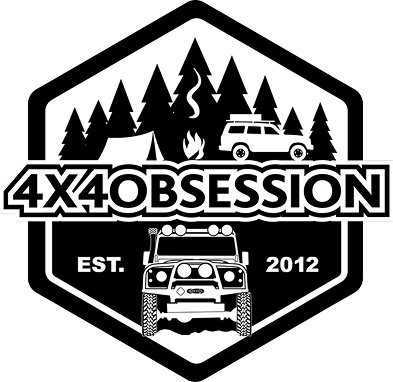An Original Overland Story
An interview with
An interview with
Overlanding before it was a hashtag
Follow #overlanding on Instagram, and you’ll find 1.3 million posts full of scenic panoramas and videos. A vehicle in the foreground, with a stunning backdrop. The more dramatic the vehicle’s positioning — on a rocky ledge, in a steep valley or river — the better. The traveller might make an appearance in front of the lens, staring off into the horizon.
Overlanding’s history goes back more than half a century, and despite the world’s changes, the concept has stayed the same. Overland Journal defines overlanding as “self-reliant adventure travel to remote destinations where the journey is the primary goal.”
The term ‘overlanding’ originated from the Australian Outback and became popularized by the widespread availability of four-wheel vehicles to the public in the mid-twentieth century. The 80 in Series I Land Rover was introduced to the world in 1948. Typically accommodated by off-road capable vehicles where the main form of lodging is camping, overlanding usually spans weeks or months and often crosses international borders.


In 1977–78, my parents Alec and Jan Forman travelled in their Series 3 Land Rover from England south to Cameroon (crossing the Sahara Desert twice) then north back through Europe and Central Asia to India, and then west again home to England. They chronicle this 14-month, 29-country journey in their book, Strangers Like Angels with a Devil or Two to Boot.
Overlanding in that era had a few key differences from today. First, there were no cell phones or social media. My parents wrote letters home to England and would send their parents the next anticipated city so that their parents could write to them there. During that year, they learned of the death of a relative through letters, shared anecdotes from the road, and were even able to surprise their parents with a homecoming one week earlier than expected due to the delayed correspondence.
Another facet of their journey was the absence of GPS. The navigation aspect of their trip consumed many of their preparations. Their equipment included a compass, binoculars, Bartholomew Maps of Europe and Asia, Michelin Map 153 of Africa North and West, a mile measure for the map, and a log book. While my dad, Alec, drove, my mum, Jan, would navigate from the maps and compass. When they were off-road, she would log the mileage and landmarks into the log book in case they lost their way. In some cases where the path was unclear, they followed other vehicles or tracks until they could identify their route again or asked the locals, “ Which way to Timbuktu?” Occasionally a local would climb into the Land Rover to really guide the way, when it was far to go.
While travelling by map may seem quaint from a modern lens, extensive preparation went into their journey before they left to ensure that it was a success. These efforts included not only mapping their route, but retrofitting their Land Rover as a home with plenty of spare parts, food, and water for every eventuality.


“To guard against extremes of weather on our journey, Alec first insulated the interior aluminum walls, doors and floor,” my mum recounts. “An elevating roof was constructed and fitted, which allowed us to stand upright in the back between the kitchen cupboards on the left and the wooden bench-cum-bed on the right. You could sit on the bench and open the drop-down, hinged, horizontal cupboard door as a nifty mini-dining table. As you climbed into the Land-Rover through the back doorway, on the left there was a small wooden box seat discreetly hiding the chemical toilet. Blinds were installed fore and aft of the living quarters for privacy at night, plus small fluorescent strip-lighting. A charcoal filter was plumbed into the worktop, to have safe drinking water pumped from the water storage tank down in the bilges.”
They also retrofitted the vehicle with a second auxiliary fuel tank, roof rack, bedding, extra jerry cans for water, and other supplies. My mum Jan made trips to embassies in London to ensure that they had all of the visas and necessary paperwork for travel.
Alec and Jan share a few tips for the modern overlander that are as true today as they were forty years ago:
- Do your preparation. My parents took six months off from their jobs to prepare, and had saved up money for five years beforehand to go more than a year without an income.
- Make a list of supplies and equipment. You can view Alec and Jan’s full list in their book.
- Pack backup food supplies. While my parents planned to stop and buy food in the places they travelled, they brought non-perishable food along in case food was scarce for a few days where they were journeying, or in case of an emergency. This included powdered milk, soup packets, potato flakes, tinned fish and dehydrated meat blocks, among other things, and of course, 900 tea bags.
- Remember the basics. Even though GPS is available today, be sure to take a compass and maps. Record detailed notes about significant natural features of the landscape.. If your technology fails, this will become invaluable.
- Water is like gold. Whenever you have the chance, do refill your water containers, and use a quality purifying system for drinking water.
- Make safety preparations. Prior to departure ensure you have had all the necessary vaccination for the expected countries you hope to travel through. If you go to a country affected by malaria do take an adequate supply of the anti-malarial medications prior to, during and for the required time after as prescribed. Have an adequate supply of medications and first aid supplies for simple needs for yourself and maybe the locals you meet along the way. Avoid eating any salads in restaurants or street food stalls, likewise no ice cubes, ice-cream or unpurified water. Sterilise fruit before eating.



Above all, the biggest tip that my parents Alec and Jan have for today’s aspiring overlanders is to find moments to switch off technology. Capture the moment with your eyes as opposed to simply envisioning your surroundings on Instagram. In several instances, including once when they interacted with a family at a Bedouin encampment, my mum reflected that “to take a photograph would have cheapened a rare and treasured experience,” so they chose to stay present, without photography, in those surreal moments.
All of Alec and Jan’s meticulous preparations equipped them for an experience they would never forget, that would jump-start them on a lifetime of adventures. Although they encountered challenges along the way, their adaptations led them to unexpected experiences and delights — and would have made for a killer Instagram feed.

While my parents did take a camera on their journey, and they actually sold their video camera partway through their trip for more funding, their limited film meant that they had to be selective about what images they captured. Today, with Instagram and YouTube, we have incredible tools at our fingertips to share images, stories, and vlogs with both friends and strangers, and bring them along with us on the journey.
The On All Cylinders blog describes the rewards of overlanding well:
“Overlanding is about exploration, rather than conquering obstacles. While the roads and trails we travel might be rough or technically challenging, they are the means to an end, not the goal itself. The goal is to see and learn about our world, whether on a weekend trip 100 miles from home or a 10,000-mile expedition across another continent. The vehicle and equipment can be simple or extravagant — they, too, are simply means to an end. History, wildlife, culture, scenery, self-sufficiency — these are the rewards of overlanding.”
Stories like my parents’ have instilled in a new generation a passion to inspire, encourage, and curate life changing adventure for themselves. This passion inspired me to found explmore, a community-driven adventure lifestyle brand mantra, as a way to connect this worldwide community.
Gallery
Today's explorers
We would love to hear how your life has changed, because of adventure.
.svg)



